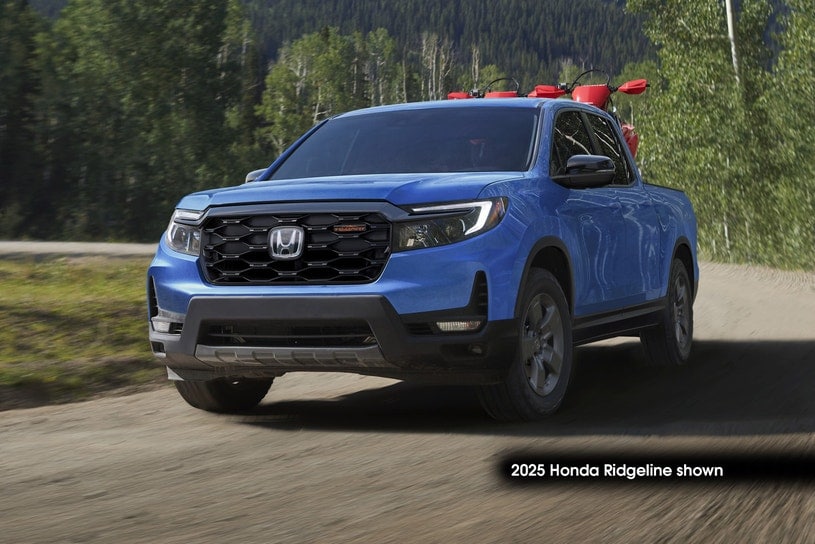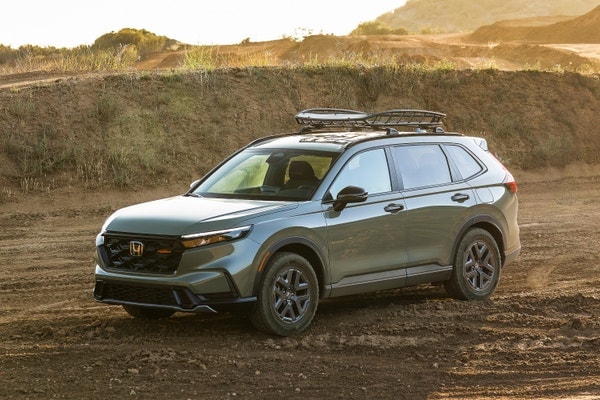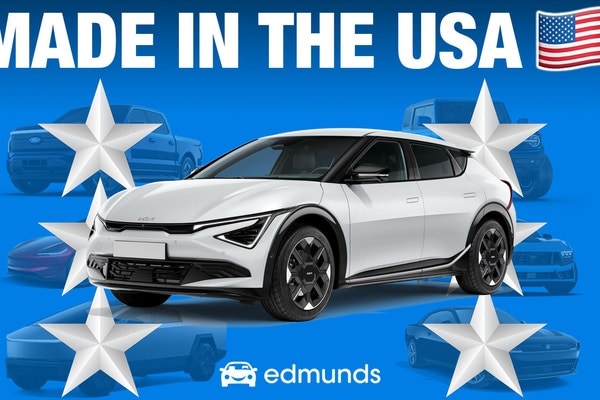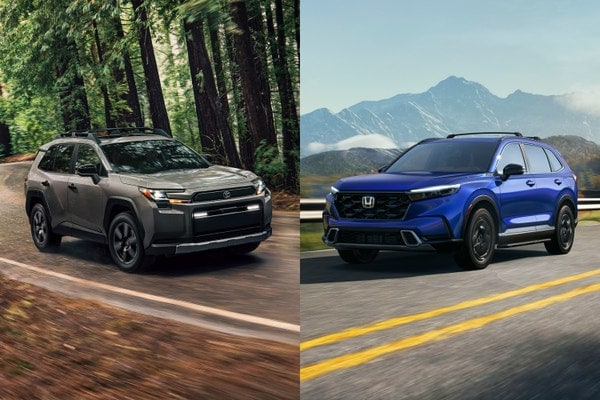In the world of midsize pickups, the Honda Ridgeline is a bit of an oddball, but mostly in a good way. Unlike others in this class — which employ traditional body-on-frame construction — the Ridgeline actually rides on a crossover SUV platform. It's based on the same mechanical underpinnings as the Honda Pilot and Passport and shares a V6 engine and similar all-wheel-drive system. The carlike backbone means the Ridgeline is more comfortable than its competitors, and it's a perfectly capable truck, as long as your off-road and towing ambitions aren't too extreme. (If you're more interested in pushing limits, its more truck-y rivals might be more appropriate.) With recent updates to the Pilot and Passport, an updated Ridgeline is likely on the horizon, but probably not for the 2026 model year.
Edmunds spotlight: Clever and comfortable
The Ridgeline takes the basic truck formula and throws in typical Honda cleverness. The in-bed trunk is thoughtful and useful, making it easy to lock away items out of sight while still being easily accessible thanks to a tailgate that either folds down or swings to the side. The bed itself is quite wide, and the Ridgeline can haul more than you think. Inside there's tons of space, and since it's based on a family-oriented SUV, the Ridgeline is comfortable around town. If and when the Ridgeline is redesigned, we'd expect yet another variation on the front-end styling theme introduced by the Pilot and ruggedized by the Passport. We'd also suspect that the Ridgeline will bring some of the Passport's off-road tricks to the table, including the increased ride height, skid plates, and special off-road all-wheel-drive modes.
Competitors to consider
The Ridgeline has an even tougher job today thanks to better-than-ever competitors. The newest Ford Ranger is our Edmunds Top Rated Truck for 2025, but the recently redesigned Toyota Tacoma and Chevrolet Colorado are also very strong competitors.






